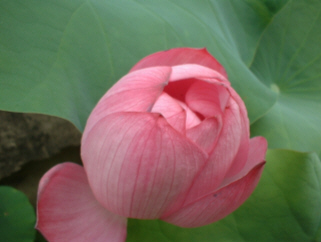| |
Qiongdan Xie, Jian Xu, Lin Feng, Lei Jiang, Wenhong Tang, Xiangdong Luo, Charles C. Han,
The lotus has long been extolled as the "beauty of purity" in Oriental cultures, as evidenced by the lotus eulogies of Chinese poets in ancient times. The lotus grows from the mire but is unblemished by it. The purity of the lotus is attributed to the water- and soil-repellent characteristics of its micro- and nanostructured surfaces.
To make the self-cleaning lotus effect technologically useful, the lotus surface must be artificially replicated. J. Xu and co-workers have used a very simple casting process to make lotuslike biomimetic surfaces.
Solutions of poly(methyl methacrylate) (PMMA) and fluorine-terminated polyurethane (FPU) were cast on glass plates under ambient conditions. Evaporation of the DMF solvent readily produced hierarchically structured coating surfaces with their PMMA micropapillae "decorated" with FPU nanodots. The biomimetic micro–nano binary structures conferred super-amphiphobicity on the polymer surfaces. Neither water nor oil could stick to the coating surfaces; and when the coated plates were tilted slightly, their spherical droplets rolled off the surfaces in a seemingly frictionless fashion.

Adv. Mater. 2004, 16, 302–305 |
|
